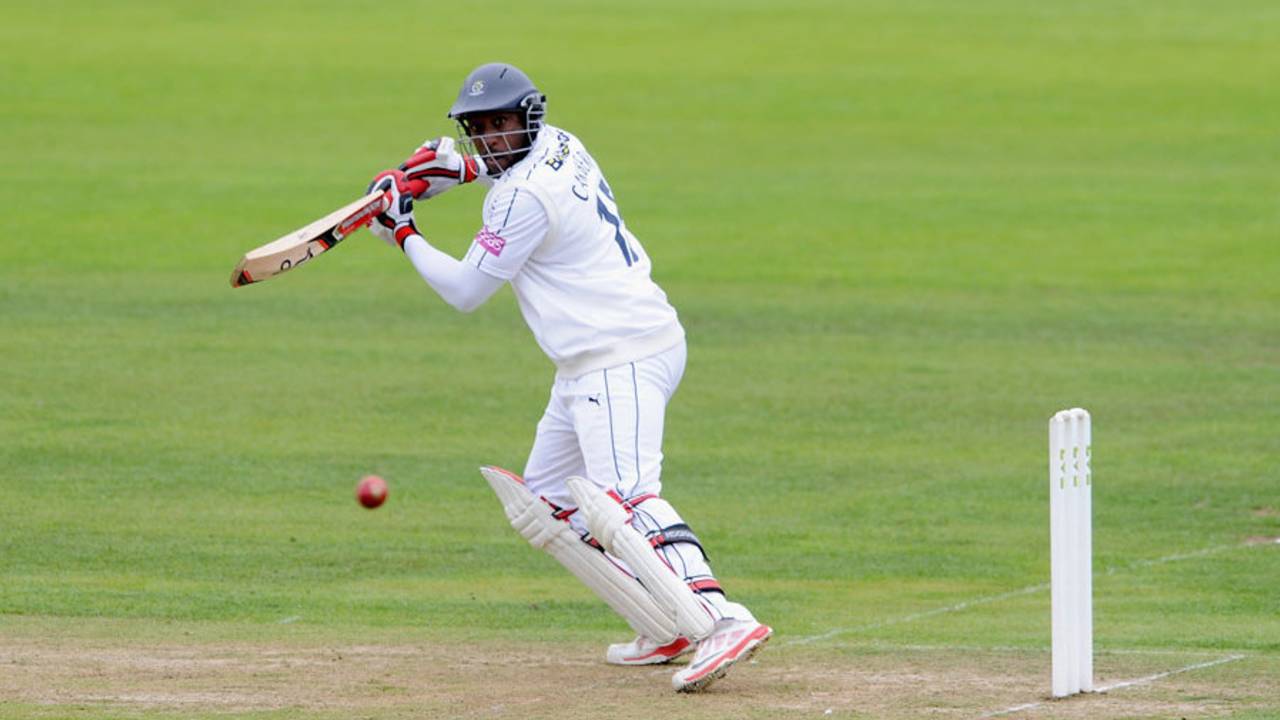'Cricket is not immune from systemic racism' - ECB
Governing body acknowledges need for 'meaningful change' as it recognises black cricketers are marginalised
ESPNcricinfo staff
Jun 12, 2020, 5:36 PM
Michael Carberry in action for Hampshire • Getty Images
The ECB says it is committed to delivering "meaningful and long-term change" to the way that cricket is run in England and Wales, after acknowledging that the sport is not immune to the "systemic racism" that "spans institutions and sectors across the country".
In a reflective statement, issued in response to the global wave of support for the Black Lives Matter movement, the ECB acknowledged that "barriers to [cricket's] enjoyment exist for many communities", and recognised the depth of feeling that has been expressed by the sport's BAME community, not least the former England opener Michael Carberry, who stated this week that "black people are not important to the structure of English cricket".
"We have listened carefully to those who have spoken out in recent weeks about their experiences of being black in cricket, sport and society," said the ECB. "We admire them for being vocal on this crucial topic. We know that systemic racism spans institutions and sectors across the country and we know that our sport is not immune."
On Thursday, James Anderson leant his voice to the cause, stating that the current levels of inclusion from players of Afro-Caribbean heritage in English cricket are "just not okay". Anderson was commenting in response to a tweet from one journalist, who had established that there was a solitary UK-born, state-school-educated black cricketer playing regular first-team county cricket in 2019.
"We truly believe that cricket is a game for everyone but understand that sadly, barriers to its enjoyment exist for many communities," the statement continued. "We have made progress in bringing cricket to more and more people around the country and it is our resolve to break down barriers and reform our structures everywhere across the game."
"In recent weeks we have reflected, and acknowledge that black players and fans, who have contributed so much to the history of our game, now feel disenfranchised. They do not feel as if cricket is a game for them. This must change.
"That is why it's so important that we continue to listen to the voices of those who have spoken out, to educate ourselves and face uncomfortable truths in order to create action internally and throughout the game, to ensure long-term change.
''We will now work to engage community leaders and black influencers within cricket so that we can review and evolve our existing inclusion and diversity work and specifically address the issues raised by the black community.
''From there, it is our overall desire to create demonstrable action, in order to deliver meaningful and long-term change that permeates every layer of the game."
The ECB has made moves in recent years to improve the sport's mainstream diversity, with the launch in 2018 of the South Asian Action Plan, in a bid to reach out to communities that contribute at least 30% of the active cricketers in the UK.
It also implemented cricket's own version of the 'Rooney Rule', which stipulates that at least one candidate from a BAME background has to be interviewed for every coaching vacancy with the men's, women's and disabled national teams.
On Friday, Vikram Solanki was appointed as Surrey's new head coach, the only person from a black, Asian or ethnic minority background in such a role among the 18 first-class counties.
